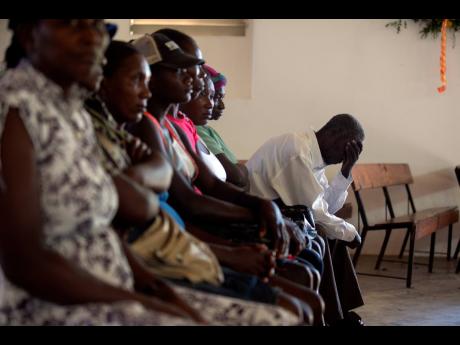A decade after deadly cholera epidemic, Haiti awaits help
MEILLE, Haiti (AP):
Ten years after a cholera epidemic swept through Haiti and killed nearly 10,000 people, families of victims still struggle financially and await compensation from the United Nations (UN) as many continue to drink from, and bathe in, a river that became ground zero for the waterborne disease.
It was one of the world’s worst outbreaks of the preventable disease in recent history, sickening more than 850,000 people in a country of 11 million that had not reported a cholera outbreak for more than a century. The last confirmed case in Haiti was reported in January 2019, but the epidemic’s aftermath is still felt across much of the country, most acutely in places like Meille, where Haitians remain exposed to unsanitary conditions and are often unable to make up for the loss of income after the main breadwinners of their families died.
“We’re not getting support from anyone,” said Lizette Paul, a 48-year-old mother of four children whose brother died in 2012 from the disease. They had to borrow hundreds of dollars from a neighbour with interest to bury him, and since then, Paul has resorted to washing clothes for people in the same river that became contaminated, charging $12 a month, not enough to care for her loved ones. Her brother had earned more by providing informal public transportation aboard a colourful bus known as a tap-tap.
“He was the backbone of the family,” Paul said.
Cholera was introduced to Haiti’s largest river in October 2010 by sewage from a nearby base of UN peacekeepers from Nepal. Six years later, the UN acknowledged it played a role in the epidemic and had not done enough to help fight cholera in Haiti, but the organisation has not specifically said it introduced the disease.
The disease spread quickly in a country that just nine months before the epidemic began had been devastated by the January 2010 earthquake. Cases spiked, given that more than a third of the population lacks basic drinking water services and two-thirds have limited or no sanitation services, according to the Pan American Health Organization.
In a letter sent to senior staff when he left the UN in December, former UN Assistant Secretary General Andrew Gilmour called it an “avoidable tragedy” that “may rank as the single greatest example of hypocrisy in our 75-year history”.
During a speech earlier this month at Harvard University, Gilmour talked publicly about the situation for the first time, noting that many felt the UN could have accepted moral responsibility much earlier and shown greater compassion.
“The low watermark has been the UN’s continued legal response to Haiti,” he said.
One of the biggest concerns a decade after the epidemic began is the ongoing lack of funds to help those affected.

